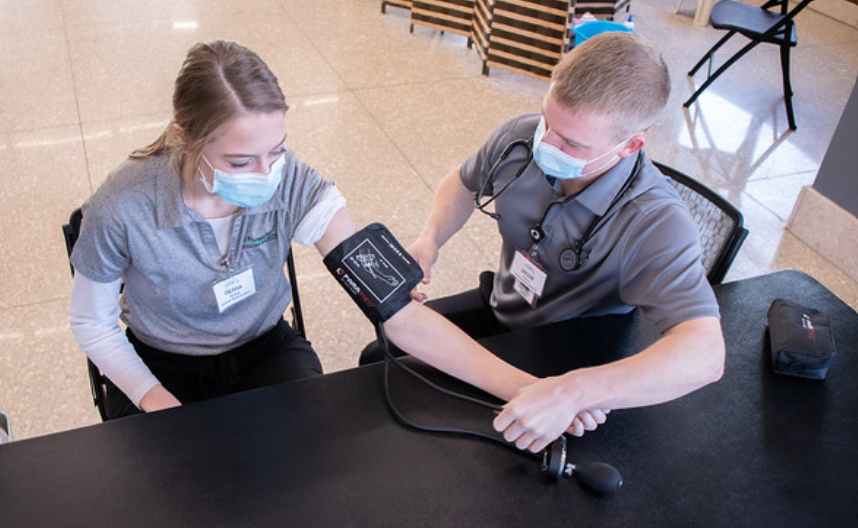 Although the COVID-19 pandemic has some undergraduate students questioning their higher education choices, Winona State University has seen a steady increase and growth in graduate programs even amidst the pandemic.
Although the COVID-19 pandemic has some undergraduate students questioning their higher education choices, Winona State University has seen a steady increase and growth in graduate programs even amidst the pandemic.
WSU currently offers more than 30 different graduate program options in four different colleges ranging in areas from athletic training to English degrees. Over the past five years graduate program students have increased from roughly 470 students in 2015 to around 700 students in the fall of 2020.
Dr. Jeanine Gangeness, the Associate Vice President for Academic Affairs in Rochester and the Dean for the School of Graduate Studies, explains that enrollment is up 43% since last spring. The projections for fall are even higher. In particular, the seven nursing programs in the Department of Graduate Nursing have seen a steady increase in the number of applicants and students for numerous years in a row.
Graduate nursing students in particular have had a hectic year with increasing hours and various work schedules due to the pandemic, meaning flexibility of a graduate program is a top priority especially in this field.
Hybrid learning has allowed students to engage in a way that works with their scheduling while also maintaining a safe environment for in-person simulation learning when needed, said Sonja Meiers, Chair of the Department of Graduate Nursing. Meiers said she’s thankful for the faculty within the department that made the well-executed flexibility for students possible.
“Flexibility and the ability to work with students, rather than enforcing rigid rules of deadlines, has and should become the norm,” Mackenzie Lucca, a student in the nursing graduate program said. “Graduate students are often working and have families that might interfere with some deadlines, but never with their drive for a higher degree.”
The pandemic has had a profound impact on the nursing field, not only in students seeking to step into the career path, but also within the field. For nurses looking to change their specialization or explore a new area of the field, higher education is on their horizon.
“I can tell you from personal experience that many nurses at the bedside are burnt out,” Lucca said. “Nursing is a broad field, and for those who want to remain, pursuing a graduate degree enables them to deepen their knowledge base, pursue leadership positions, and create policy change.”

Excellent article. I am searching for small school that has a veterinary science grad program. I thought WSU had one, but I don’t see it listed, so I was probably remembering the nursing program. Anyway, thanks for the great overview!